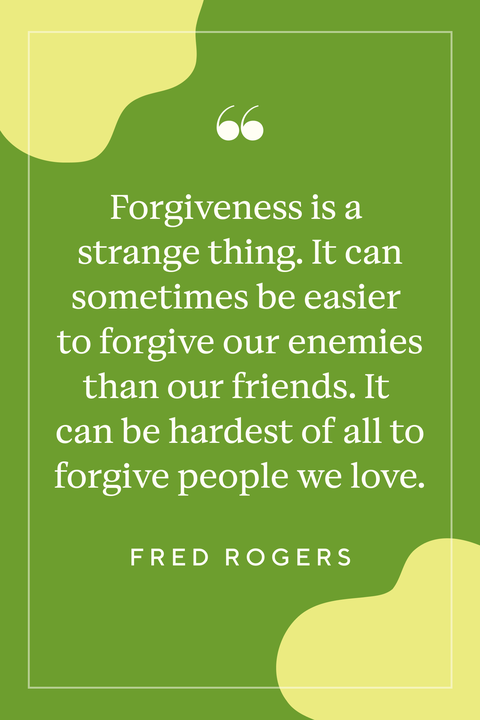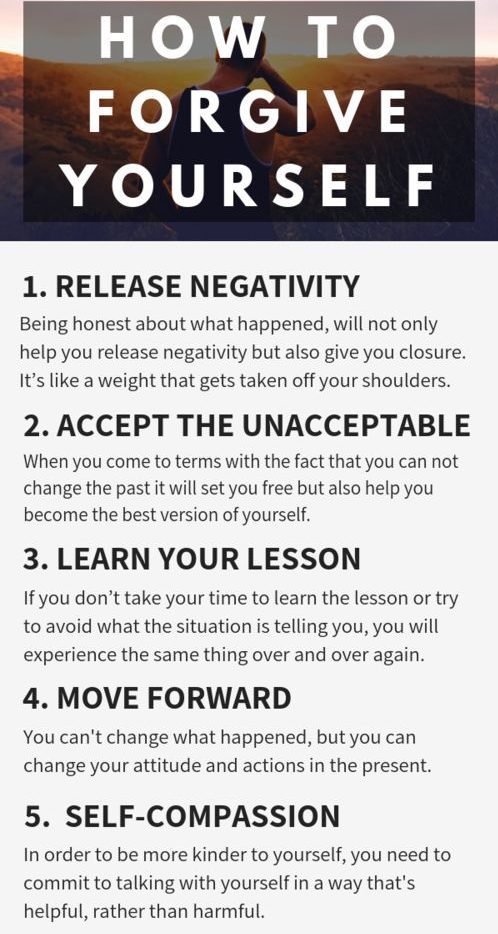When someone you care about hurts you, you can hold on to anger, resentment, and thoughts of revenge — or embrace forgiveness and move forward.
Who hasn’t been hurt by the actions or words of another? Perhaps a parent constantly criticized you growing up, a colleague sabotaged a project or your partner had an affair. Or maybe you’ve had a traumatic experience, such as being physically or emotionally abused by someone close to you. These wounds can leave you with lasting feelings of anger and bitterness.
But if you don’t practice forgiveness, you might be the one who pays most dearly. By embracing forgiveness, you can also embrace peace, hope, gratitude, and joy. Consider how forgiveness can lead you down the path of physical, emotional, and spiritual well-being.
What is forgiveness?
Forgiveness means different things to different people. Generally, however, it involves a decision to let go of resentment and thoughts of revenge.
The act that hurt or offended you might always be with you, but forgiveness can lessen its grip on you and help free you from the control of the person who harmed you. Forgiveness can lead to feelings of understanding, empathy, and compassion for the one who hurt you.
Forgiveness doesn’t mean forgetting or excusing the harm done to you or making up with the person who caused the harm. Forgiveness brings a kind of peace that helps you go on with life.
Why it’s important to forgive?
Letting go of grudges and bitterness can improve health and peace of mind. Forgiveness can lead to Healthier relationships, Improved mental health, Less anxiety, stress, and hostility, Lower blood pressure, Fewer symptoms of depression, A stronger immune system, and Improved heart health, Improved self-esteem
But its easier to hold a grudge?
Being hurt by someone, particularly someone you love and trust, can cause anger, sadness, and confusion. If you dwell on hurtful events or situations, grudges filled with resentment, vengeance, and hostility can take root. If you allow negative feelings to crowd out positive feelings, you might find yourself swallowed up by your own bitterness or sense of injustice.
How do I reach a state of forgiveness?
Forgiveness is a commitment to a personalized process of change.
Recognize the value of forgiveness and how it can improve your life.
Identify what needs healing and who needs to be forgiven and for what.
Acknowledge your emotions about the harm done to you and how they affect your behavior, and work to release them.
Choose to forgive the person who’s offended you.
Move away from your role as a victim and release the control and power the offending person and situation have had in your life
Different ways of forgiveness
Acceptance: The need of accepting that humans make mistakes. We as individuals also make mistakes & want others to forgive us. We may never know the other person’s journey in life. Why they are the way they are.
Expectations: You cannot control or make right other people’s actions. Focus on what we can control rather than can’t control.
Awareness: The outcome of anger and resentment in the world has been destructive. Letting these emotions poison our minds and perceive things negatively is unwise. Be mindful of our destructive thinking. Letting them go before they grow and take roots & destroy our peace of mind
Choice: We always have a choice. Be powerful by making the choice to love and not hate. Exercise your freedom to choose the right emotional diet for your mind for your own peace
Responsibility: No matter what happens, we are responsible for our own physical, mental, and emotional health. We need to do whatever is required to bring peace within. By aligning our actions with our values, we can live our lives with integrity & peace.
As you let go of grudges, you’ll no longer define your life by how you’ve been hurt. You might even find compassion and understanding. Forgiveness can take away the power the other person continues to wield in your life.
You can’t force someone to forgive you. Others need to move to forgiveness in their own time. Whatever happens, commit to treating others with compassion, empathy and respect.

